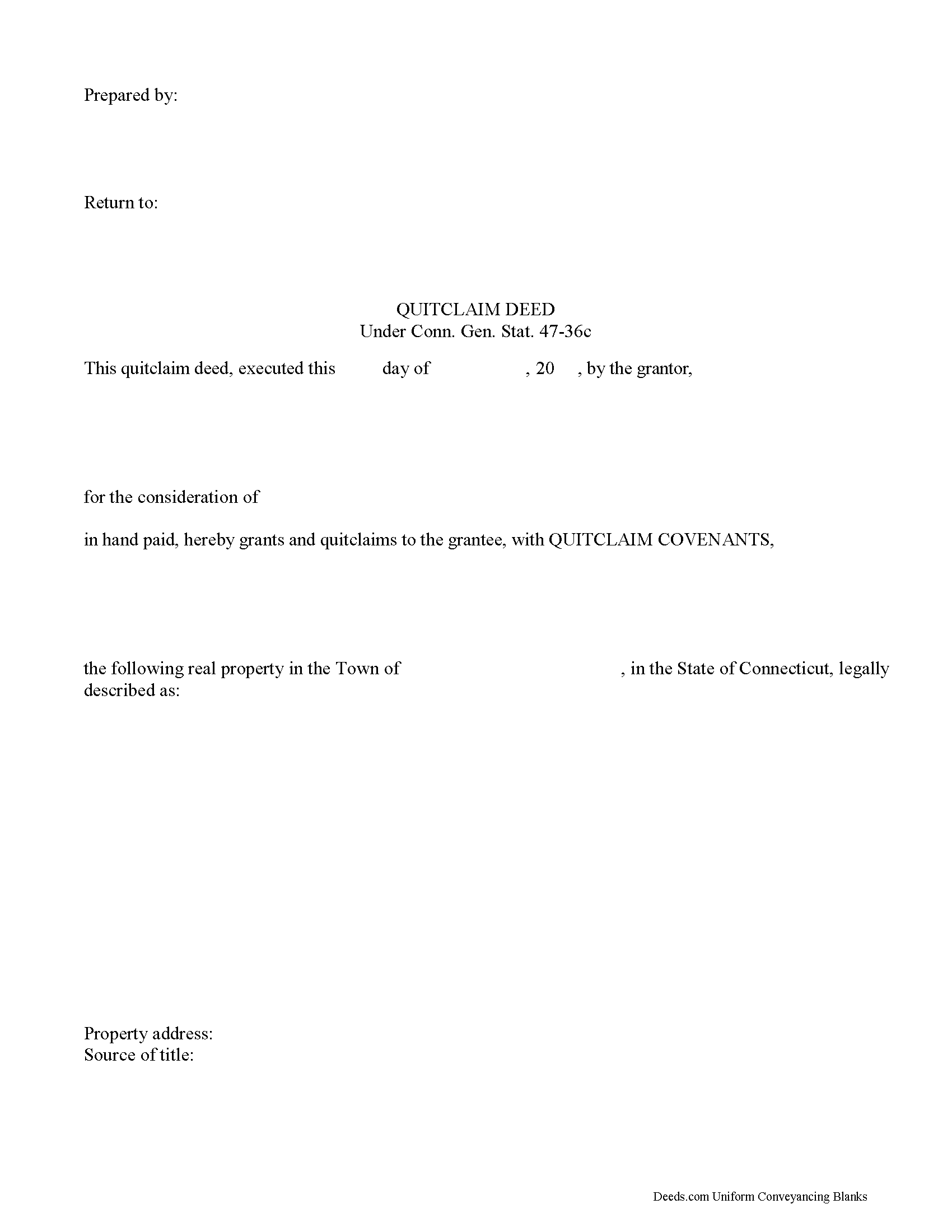Download Connecticut Quitclaim Deed Legal Forms

Connecticut Quitclaim Deed Overview

As set forth in General Statutes Sec. 47-5, 47-36c, quitclaim deeds in the state of Connecticut must contain specific information in order to be validly executed.
Contents:
Lawful quitclaim deeds must be in writing; require a title clearly identifying the purpose of the document; the names and addresses of both grantor and grantee; the grantee's vesting choice (how he/she wishes to hold title); a legal description and address of the real property conveyed; the date of execution and signing; the grantor's signature; acknowledgement of notary or other officer certified to administer oaths; and signatures of two witnesses not named on the deed, one of whom may be the notary (47-5, 47-10). In addition, any document that changes the information contained within a previously recorded document must contain the book and page or serial number reference of the prior recording as well as the name and contact information of the person who created the new legal description. (See 38-35-106.5)
Recording:
Record all documents marking a change in land ownership in the office of the Town Clerk or other official responsible for maintaining the public land records. 7-24 defines statutory formatting rules, which state that each quitclaim deed presented for recording requires a minimum " margin on the top, bottom, left, and right of the page, and that a name and return address should be at the top of the first page. Standard letter-sized paper (8" x 11") is recommended, but most pages larger than legal-sized (8" x 14") will be charged an extra fee for non-standard size. For ease of indexing, type or print the name of each signor near the signature.
Connecticut follows a "notice" recording statute, (see 47-10) which asserts that unrecorded conveyances are not effective against anyone other than the grantor and his/her heirs. This means that if an executed quit claim deed is not entered officially into the public record, a later purchaser for value who records the conveyance will, in most cases, prevail over an earlier grantee whose claim of rights to the title was not formalized by recording.